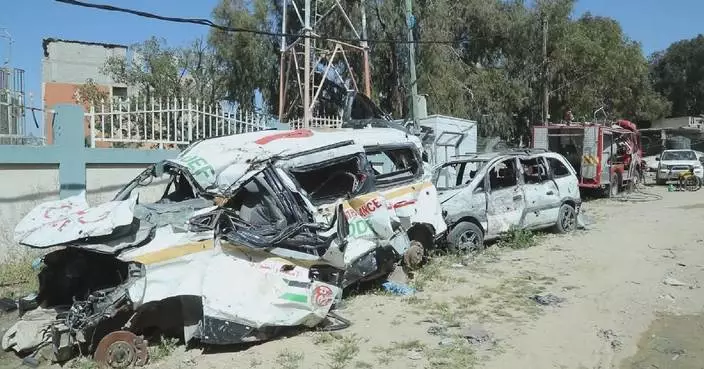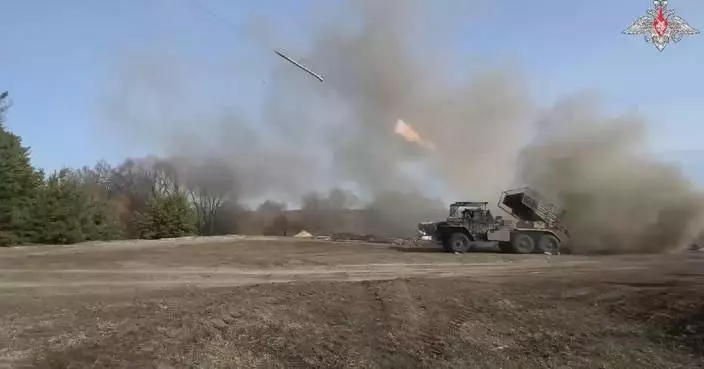Medical support and basic living necessities are urgently needed in quake-hit Myanmar, where massive power outages are hindering rescue efforts and concerns are rising over potential disease outbreaks, a member of the non-governmental medical aid group, Doctors Without Borders, or Medecins Sans Frontieres (MSF), said on Sunday.
The powerful 7.9-magnitude earthquake struck central Myanmar at around lunchtime Friday and has left at least 1,700 people dead and some 3,400 injured, while around 300 remain missing, according to the latest update from Myanmar's State Administration Council on Sunday.
Speaking in an online interview with the China Global Television Network (CGTN), Oscar Schaible, a doctor with the MSF, described the dire situation on the ground and emphasized that power outages and communication blackouts are making it nearly impossible to determine the true extent of the damage or the number of injured at this stage.
"It's very difficult to know the full scale of the damage and the medical needs at the moment because of communication outages. Due to the earthquake, we have massive power outages, even in Yangon. In addition to the power outages and communication issues, we have access issues. So the main highway to Mandalay and Nay Pyi Taw, the most affected areas, has been cut off. And the main airports are closed. So, all this is posing significant challenges to all humanitarian responders on the ground to reach the scene and start with rescue operations," he said.
Schaible noted that parts of the Sagaing region and southern Shan State are believed to have suffered extensive damage, as these regions were already facing communication issues due to months of ongoing conflict, making them even more vulnerable in the wake of such a disaster.
He stressed the importance of providing immediate medical care to people who have sustained injuries, and also said there is an urgent need for additional support and basic supplies amid fears of a wider health emergency in the aftermath of the quake.
"It's very crucial to provide this [medical assistance] in the first 72 hours after an earthquake to save lives and avoid the risk of further complications. From the MSF's perspective, we fear now that the health situation may deteriorate further. And due to the destruction of the health facilities and the lack of clean drinking water and poor sanitary conditions, that's why we're concerned about potential outbreaks of water-borne diseases, [like] diarrhea or cholera, but also malaria and dengue fever is something we should not forget about and is a concern for us in the current area," he said.
"That's why we believe that these areas need now urgent medical support, but also be provided with shelter, clean drinking water, but also mosquito nets and other items to help people who have lost everything and who are now currently living on the streets," added Schaible.

Urgent medical aid, living necessities needed in Myanmar after devastating quake: MSF doctor



















































